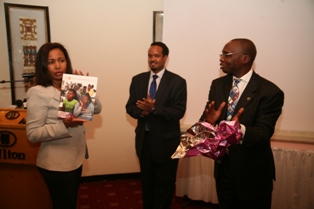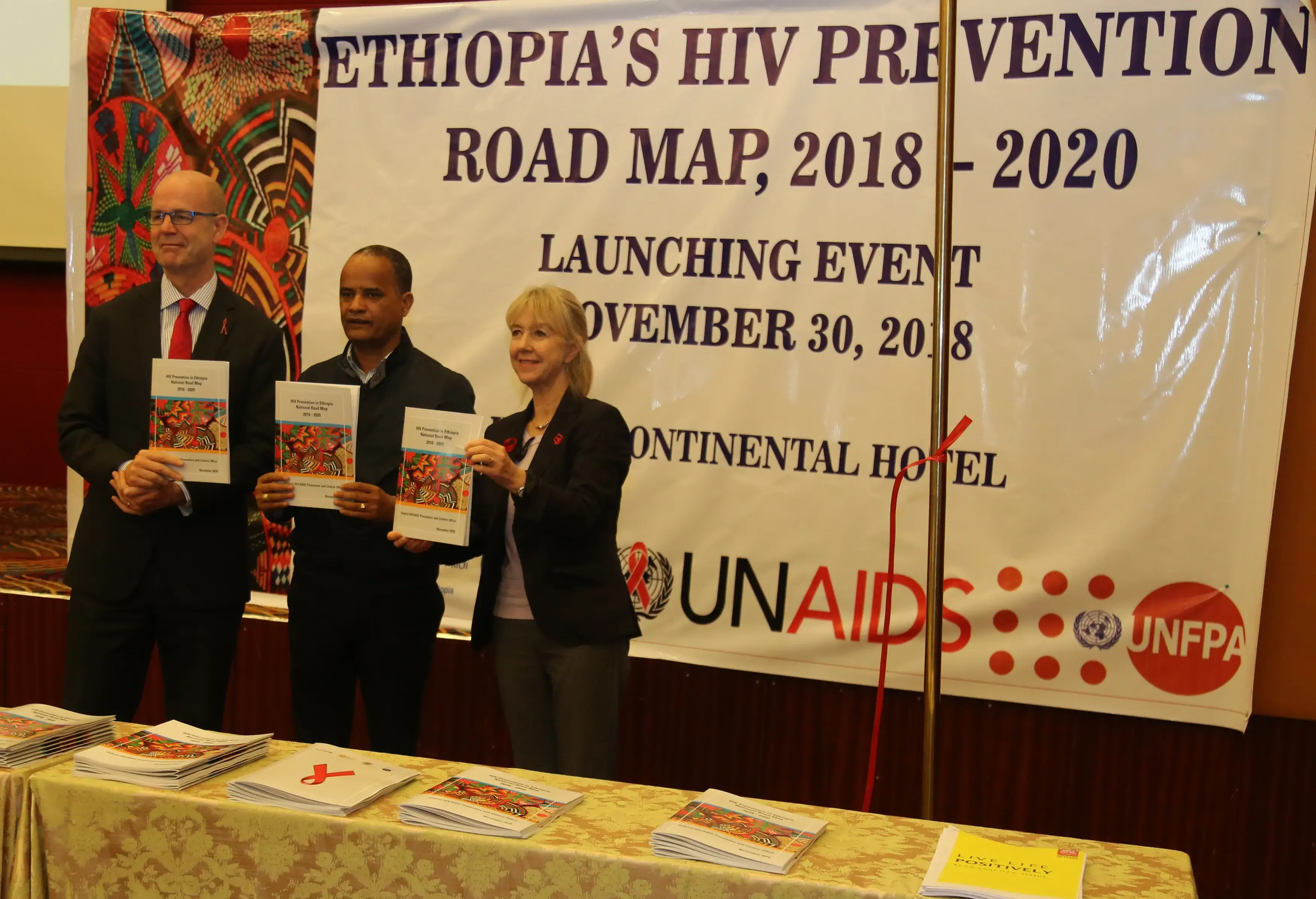The challenges confronting humanity as the world's population reaches 7 billion on 31 October were presented in the State of World Population 2011 Report which was launched on 26 October by UNFPA. The State of World Population 2011 which was launched by the First Lady of the Federal Democratic Republic of Ethiopia has the theme People and possibilities in a world of 7 billion.
Addressing the launching ceremony, Mr. Ahmed Shide, State Minister of Finance and Economic Development of Ethiopia, said that "we need to take advantage of the challenges and opportunities presented by the World of 7 billion people for the benefit of the future generation." The State of World Population 2011 is mainly a report from the field, from nine countries where the ordinary people who live there, the national experts who study demographic trends and the policymakers who must make decisions based on local conditions talk directly about their lives and work: China, Egypt, Ethiopia, Finland, India, Mexico, Mozambique, Nigeria and the former Yugoslav Republic of Macedonia. Each of the countries featured in the report is seeing in their specific population trends-such as urbanization, longer life expectancies and rapidly expanding working age populations-not only big challenges but also enormous opportunities to seize these moments and turn them into good news.

According to the report, the Population Division of the United Nations Department of Economic and Social Affairs, in a report it release in May this year, foresees a global population of 9.3 billion people in 2050, and more than 10 billion by the end of this century. Much of this increase is expected to come from high fertility countries, which comprise 39 in Africa, 9 in Asia, 6 in Oceania and 4 in Latin America. Asia will remain the most populous major area in the world in the 21st century, but Africa will gain ground as its population more than triples, increasing from 1 billion in 2011 to 3.6 billion in 2100.
"A world of 7 billion is both a challenge and an opportunity," said UNFPA Executive Director, Dr. Babatunde Osotimehin. "Globally, people are living longer, healthier lives and choosing to have smaller families. But reducing inequities and finding ways to ensure the well-being of people alive today - as well as the generations that follow - will require new ways of thinking and unprecedented global cooperation," he added.
The State of World Population 2011 stipulates that with planning and the right investments in people now the world of 7 billion and beyond can have thriving, sustainable cities, productive labour forces that can fuel economic growth; youth populations that contribute to the well-being of economies and societies; and a generation of older people who are healthy and actively engaged in the social and economic affairs of their communities. In many parts of the developing world, where population growth is outpacing economic growth, the unmet need for reproductive health care, especially voluntary family planning, remains great. The attainment of a stable population is a precondition for accelerated economic growth and development, states the report.
The launching ceremony of The State of World Population 2011 was attended by senior government officials, members of the diplomatic corps, representatives of international organizations, civil society organizations, faith-based organizations ; and professional associations.




